
Actions for Sustainability
Avoid, Reduce, Recycle, Reuse
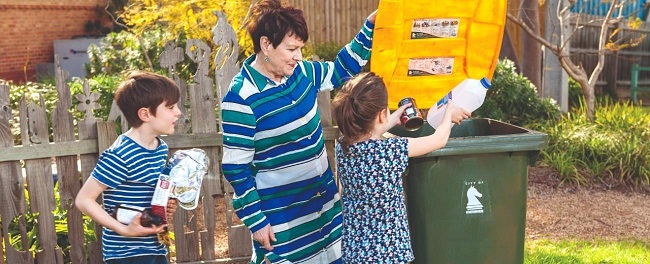 Recycle wherever possible and – even better – reuse things.
Recycle wherever possible and – even better – reuse things.
Look for items that are local and have produced less greenhouse gas emissions. Consider everything you consume, from clothes to food to energy.
- Waste and Recycling Information
- Purchase a worm farm, compost bin or bokashi bin
- Hawkesbury Community Recycling Centre – Free Drop Off for Household Problem Wastes
- Waste and Recycling Education Videos
Cloth Nappy Education Resources
A kerbside bin audit was undertaken in the Hawkesbury in 2020. By weight, it was found that AHW/nappies made up 4.36% of the general waste bin- that’s almost 900 tonnes of disposable nappies in 1 year!
Each baby has around 6000 nappy changes. That’s either a lot of disposables stinking up your bin and sitting in landfill (taking up to 500 years to decompose) or 24 cloth nappies that you wash and reuse. Cloth nappies are better for the environment, save you money and are easier than ever to use.
The below resources were developed by the Western Sydney Waste Educators’ group which is facilitated by WSROC, after identifying disposable nappies as a priority waste item with the potential to be avoided:
Videos:
- Fitting a cloth nappy
- Styles of cloth nappies
- Cloth nappies for newborns
- Washing cloth nappies
- Cloth nappy frequently asked questions
Other resources:
This project is a NSW Environment Protection Authority, Waste Less, Recycle More initiative, funded from the waste levy.
Energy Savings Tips
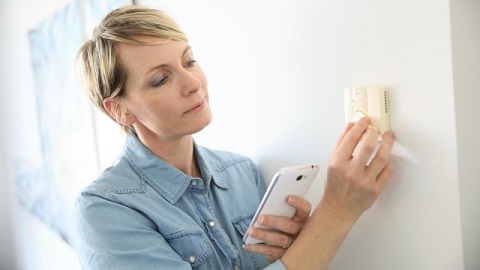 Consider using fans instead of air conditioning.
Consider using fans instead of air conditioning.- If you use an air conditioner, each degree on the thermostat can save you 10% in running costs.
- A standard air conditioner’s temperature should be set to 25 to 27 degrees for cooling in summer, and around 18 to 20 degrees for heating in winter. This is to help ensure maximum energy efficiency from your unit.
- Closing gaps and cracks around the house can reduce your energy running costs.
- ‘Zone’ your home (Bedrooms and Living Areas) by cooling one part of your house and cut down on cooling in other areas.
- Close curtains and blinds during the day in Summer to keep your house cool.
- Cross-ventilation and open windows in the evening in Summer to allow for natural breezes
Unplug
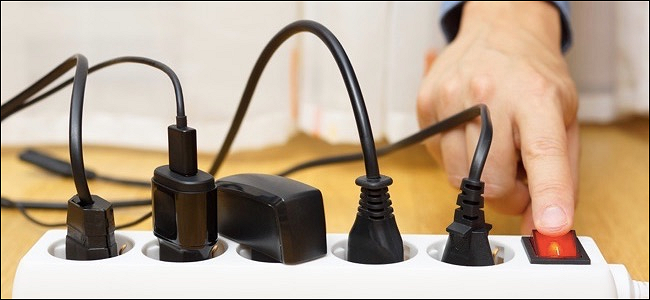
Standby power could cost more than you realise.
Even when you power down your household items, they keep drawing energy to remain in standby mode.
If you think this can’t add up to much, think again – standby power is responsible for up to 10 per cent of your power bill. The biggest standby power culprits include remote controlled items - such as TVs, stereos and DVD players - since they need to remain at-the-ready to respond to the remote when you turn them on again.
You’ll find other examples in the kitchen. Appliances that have a clock display such as microwaves, need electricity to keep the time when they aren’t in use.
Hot Water Systems - Reduce your hot water costs
Hot water accounts for around 16% of the average household's energy costs. Most of the hot water is used in the bathroom, followed by the laundry and kitchen.
Regardless of the type of hot water system you use, there are a number of common sense ways to reduce the amount of hot water you use and pay for.
- Install a low-flow shower head for a satisfying shower using the minimum amount of water.
- Take shorter showers. Use a shower timer to encourage your household to take four-minute showers.
- Wash your clothes in cold water where possible.
- Fix dripping taps.
- Insulate exposed hot water pipes with closed-cell rubber insulation, available from hardware stores.
- Service and maintain your hot water system using a licensed tradesperson according to the manufacturers instructions.
- Plan for your hot water system's replacement, especially if it's more than ten years old. Choose a hot water system to suit your household's needs.
Choose an energy efficient hot water system
There are a range of energy efficient hot water heaters to choose from, depending on your fuel source, household size and budget.
Choose the right hot water system for your needs and use it wisely, and you can save energy and lower your hot water costs. Learn more about your options on the Federal Government’s website
More Information
- Energy Saver NSW Government
- Energy Saver NSW Government - Energy Rebates:
- Low Income Household Rebate
- Gas Rebate
- Family Energy Rebate
- Life Support Rebate
- Medical Energy Rebate
- Energy Accounts Payment Assistance Scheme
- Seniors Energy Rebate
- Energy Saver NSW – “Understand Your Bill”
- Energy & Water Ombudsman NSW (EWON) ‘Ways to save on your bills”
- Hawkesbury Central Library- Save Power Kits – Free to Borrow
Hawkesbury residents can learn how to save power and money at home by borrowing a Save Power Kit for free from the Hawkesbury Central Library in Windsor. The Save Power Kit contains tools and instructions that can help you find ways to save power, reduce your power bills and their impact on the environment.
Energy Efficiency videos
An average household spends more than $2,500 on energy bills every year. Making informed energy choices will help you save energy and may reduce your energy bills. The following videos highlight what you can do at your home to reduce energy costs and also reduce emissions.
Food Choices
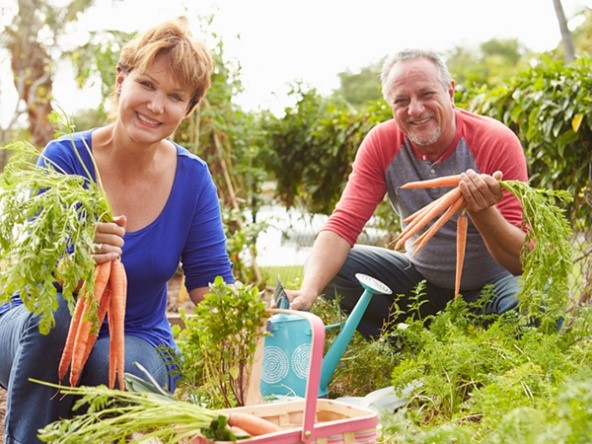
Food thrown into your garbage bin ends up in landfill. Food in landfill breaks down in a way that can create greenhouse gases, including methane, which affect air quality and public health. When we waste food, we also waste the resources used to grow our food (water, soils and energy) and all the energy used to process, package and transport food from markets to our homes.
Food production is responsible for approximately 26% of Global Greenhouse Gas Emissions. The decisions and choices individuals make regarding food can have a profound effect on the environment.
Here are four simple ways you can make your diet more climate friendly:
- Eat more meat-free meals
- Buy organic and local whenever possible
- Don’t waste food – for tips and advice
- Grow your own – for tips and advice
Plant trees
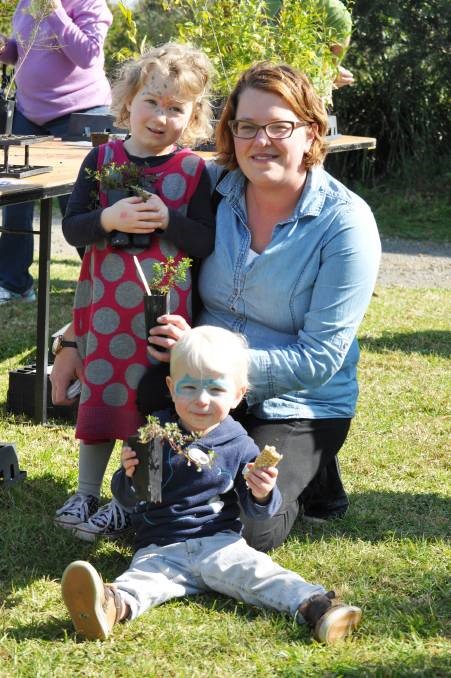 Mature trees not only capture carbon, but they also provide shade from the summer sun, improve air quality and privacy, and can even enhance the value of your property. Remember to look for species that are suitable for your property’s size and location.
Mature trees not only capture carbon, but they also provide shade from the summer sun, improve air quality and privacy, and can even enhance the value of your property. Remember to look for species that are suitable for your property’s size and location.
The Hawkesbury Community Nursery propagates indigenous native plants of the Hawkesbury Region. Located at 10 Mulgrave Road, Mulgrave, next door to the Hawkesbury Companion Animal Shelter, the Nursery is run with the valuable assistance from volunteers.
The Nursery is open to purchase plants on Wednesdays from 9am to 1pm or by appointment and on the 1st Saturday of the month from 9am to midday (excluding December and January) under COVID-Safe guidelines. Please call Council to make an appointment (02) 4560 4444.
Take a look at the Council’s nursery page for the current list of plants available.
Purchase Green Power
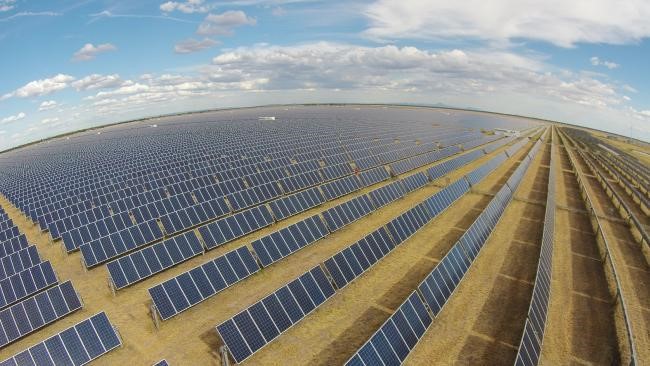 The GreenPower Program is an Australian Government managed scheme that enables Australian households and businesses to displace their electricity usage with certified renewable energy, which is added to the grid on their behalf.
The GreenPower Program is an Australian Government managed scheme that enables Australian households and businesses to displace their electricity usage with certified renewable energy, which is added to the grid on their behalf.
Solar Panels
Consider switching to solar energy wherever possible.
 NSW is experiencing an uptake of solar power. Across the state, record numbers of households are installing small-scale solar photovoltaic (PV) systems. The NSW Government's goal is to have net zero emissions by 2050 and switching to solar can help achieve this target.
NSW is experiencing an uptake of solar power. Across the state, record numbers of households are installing small-scale solar photovoltaic (PV) systems. The NSW Government's goal is to have net zero emissions by 2050 and switching to solar can help achieve this target.
The Independent Clean Energy Council’s website answers common questions and concerns regarding solar power, click here for further details.
Hawkesbury residents are also installing solar systems at an increasing rate with 18% of all dwellings in the Hawkesbury now having solar systems installed.
In the Hawkesbury, residents are also installing solar systems at an accelerating rate, a 17.7% increase in 2017/18 compared to 2016/17, with 18% of all dwellings in the Hawkesbury in 2019 having solar panels.
More Information
Transport
 If you own a vehicle, maintaining it is essential to help ensure your vehicle is roadworthy, safe to drive, fuel-efficient and friendlier to our environment. Simple vehicle maintenance checks include:
If you own a vehicle, maintaining it is essential to help ensure your vehicle is roadworthy, safe to drive, fuel-efficient and friendlier to our environment. Simple vehicle maintenance checks include:
- Check your tyres air pressure
- Check your vehicle fluids
- Check your battery
- Service your vehicle regularly
Consider an Electric or Hybrid Vehicle
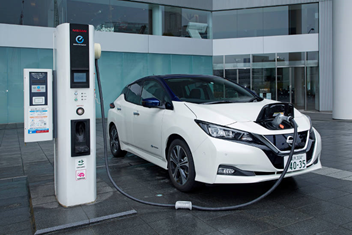 An electric vehicle can reduce your environmental impact and save you money in the long run.
An electric vehicle can reduce your environmental impact and save you money in the long run.
Before purchasing an Electric Vehicle, understand your options so you can make an informed decision. Weighing up emissions, charging requirements and running costs will help you to select the electric car that is the best fit for you and your needs.
The number of available models in Australia is increasing, many car manufacturers now offer electric cars for sale in their dealerships.
Car Sharing
Car sharing supports community transit and environmental goals, including:
- decreasing personal car ownership
- reducing vehicle distance travelled
- improving urban land use and development
- providing affordable access to vehicles for everyone
- motivating residents to walk, cycle and take buses and trains
- decreasing dependence on fossil fuels while reducing emissions of greenhouse gases.
A few car share operators in Sydney
More Information:
Water Wise Tips
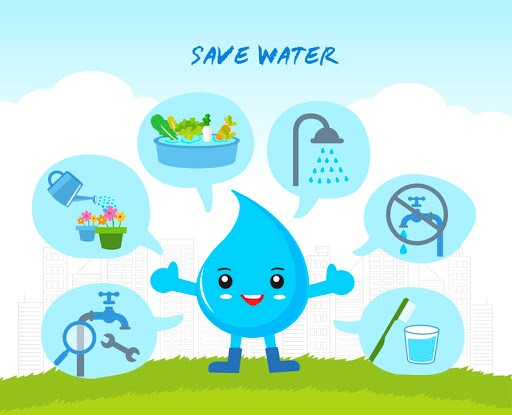 We all need to look for ways to save water around our homes whenever possible. With a limited supply of water, it is crucial that we use it wisely and care for it properly. Some of the reasons why we should conserve water:
We all need to look for ways to save water around our homes whenever possible. With a limited supply of water, it is crucial that we use it wisely and care for it properly. Some of the reasons why we should conserve water:
- help protect and preserve our environment
- minimise the effects of drought and water shortages
- save energy and money – saving water will reduce your water and energy bills
Ways to reduce water usage include:
- Keep your showers to four minutes.
- Wait until your dishwasher or washing machine is fully loaded before you turn it on.
- Turn off the tap while you brush your teeth or shave.
- Wash your vegetables and rinse dishes in a plugged sink or basin – not under a running tap.
- Install a 4-star WELS rated water-saving showerhead and 4-star rated water-efficient taps to save on water and energy costs.
Save Water in the Garden
To save water and get the most out of your garden:
- watering early in the morning or late in the afternoon
- watering the base of the plant, instead of overhead
- adding mulch to your garden to keep moisture in the soil
- planting native varieties that need less water and care
- collecting rainwater in buckets and drums for your garden
- sweeping paths or driveways instead of hosing
- leaving lawn 3cm tall or more so it needs less water
- washing your car on the lawn using buckets instead of the hose
For more water-saving tips in the Garden, visit Gardening Australia.
Save Water if you have a Swimming Pool
Following some simple water saving tips when using and maintaining your pool will ensure you can enjoy your pool and still save water:
- One of the most effective ways to limit evaporation and leaf litter is to use a pool cover.
- Leaks not only waste water, but could undermine the foundations of your pool. If the water level drops abruptly or you have other reasons to suspect a leak, you should act quickly and contact suitably qualified tradesperson to have it repaired.
More Information
- Sydney Water
- Swimming Pools and Spas Association – Australia – “Pool ownership and water savings…why every drop counts”
Page ID: 160570
